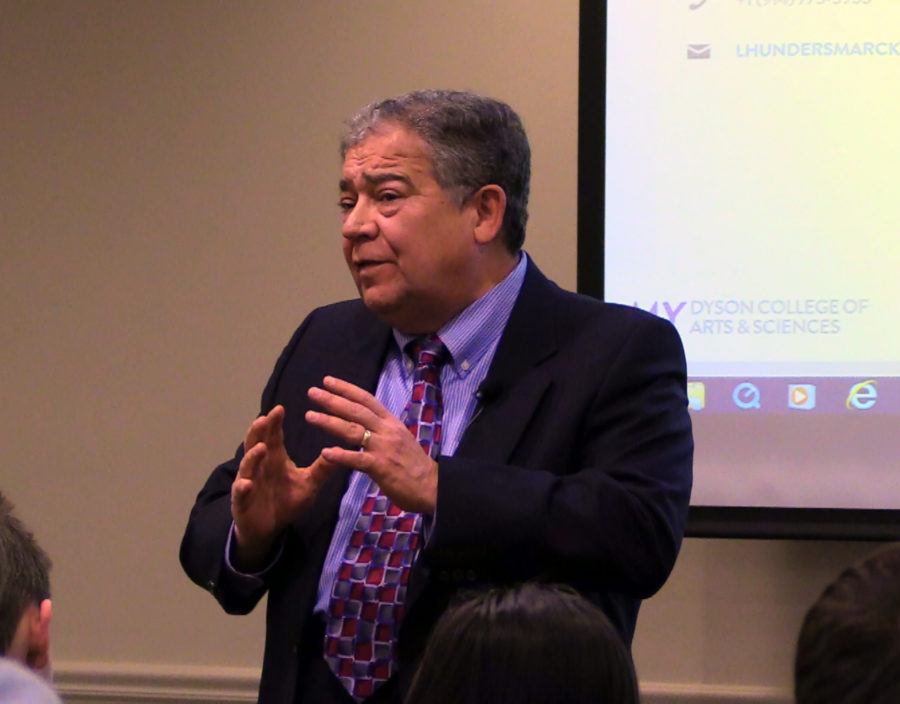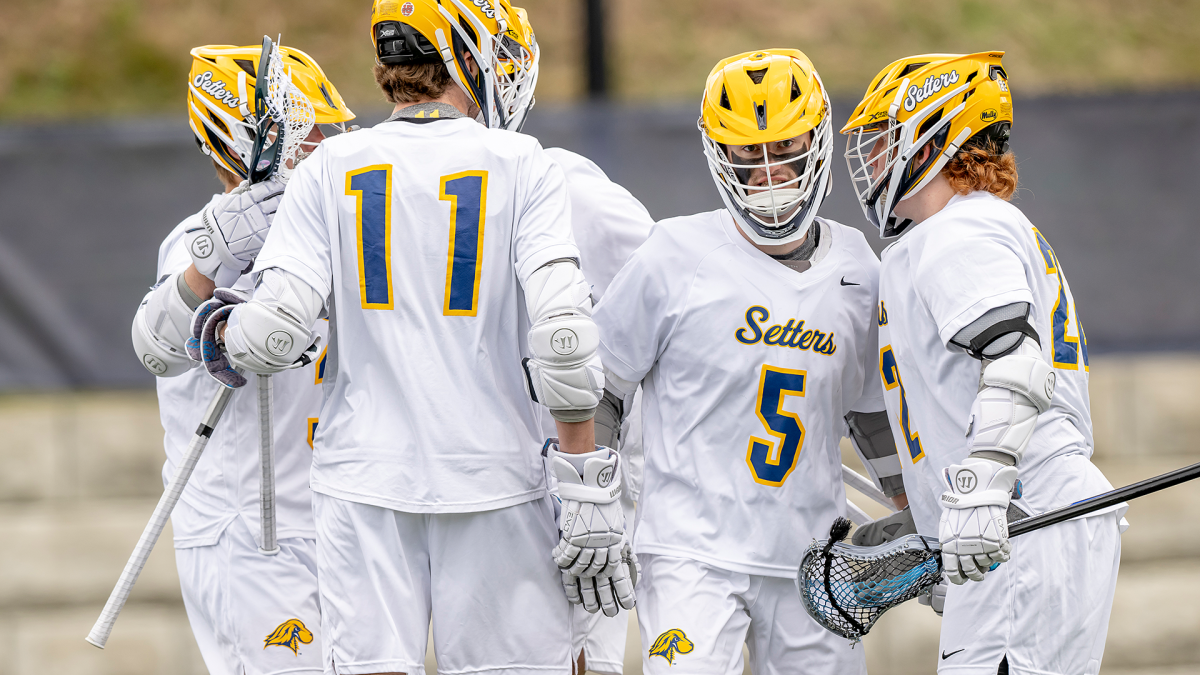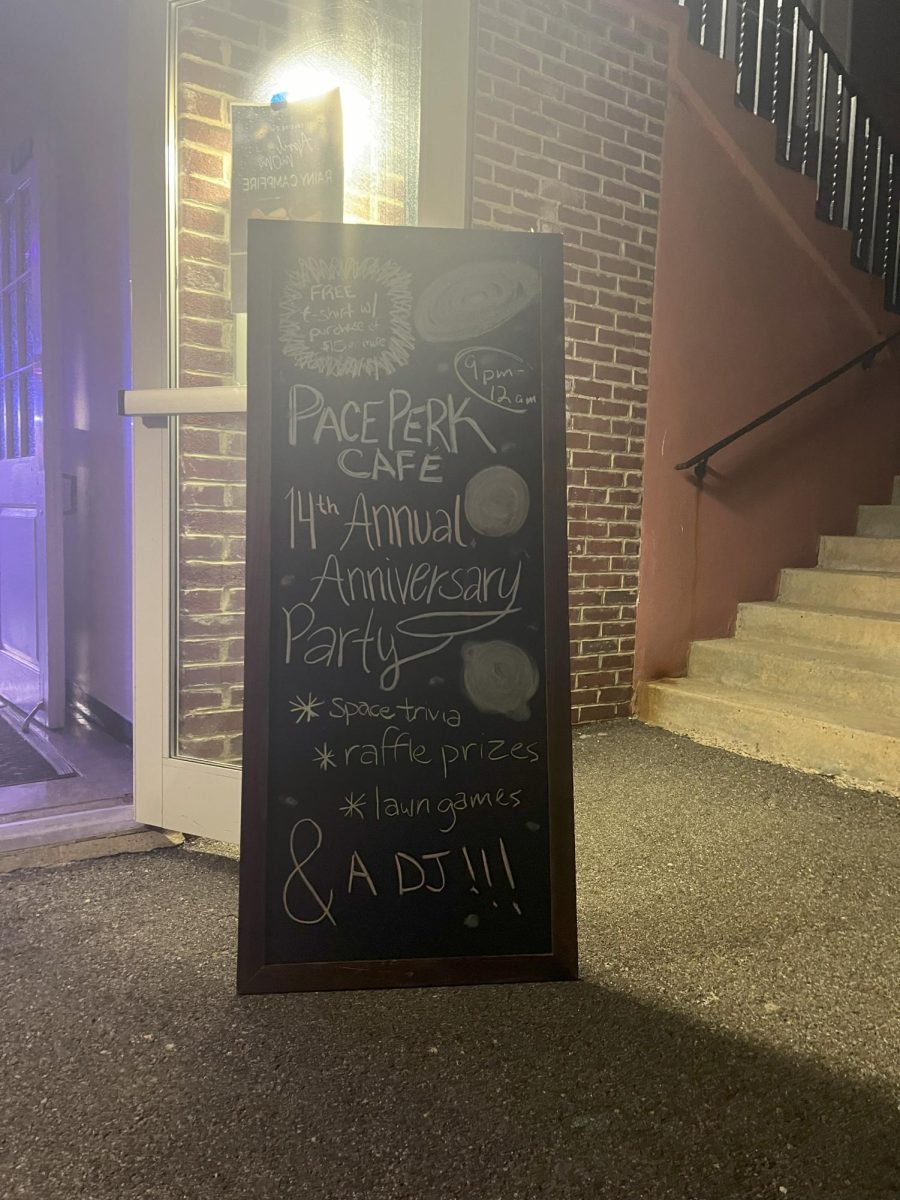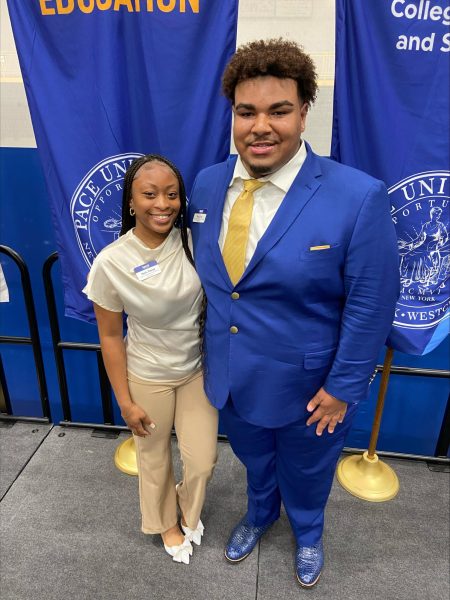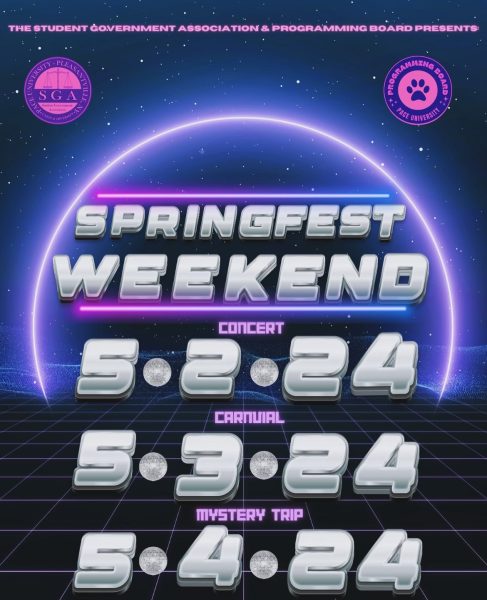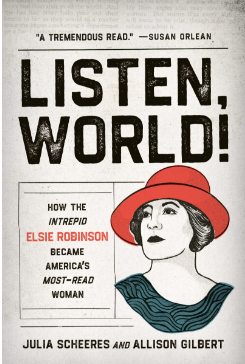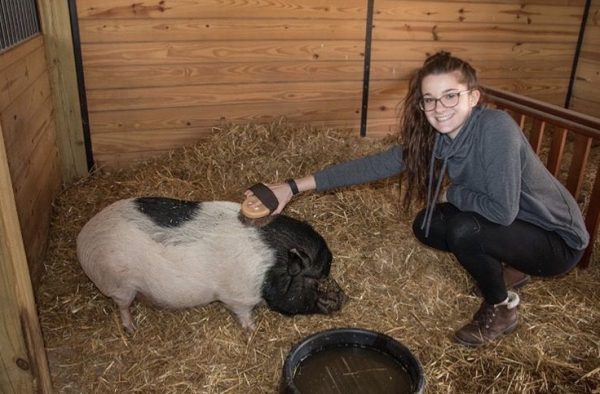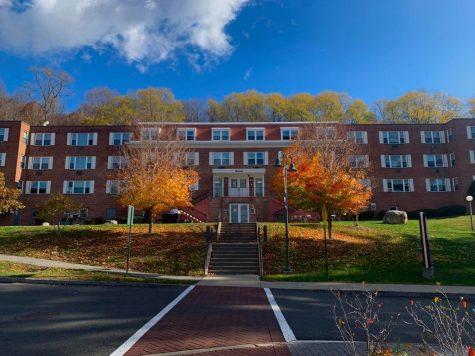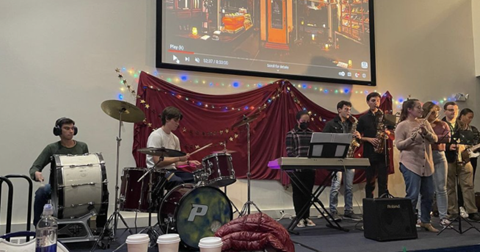Dr. Hundersmarck Searches for Happiness
February 10, 2018
In front of many eager eyes and ears, Dr. Lawrence Hundersmarck explained happiness and his findings on the subject; observations gathered from a lifetime of searching for the answer to perhaps the most important question- how can one find happiness?
What, then, does happiness mean for Dr. Hundersmarck?
Drawing from his background of study in both religion and philosophy, Hundersmarck more than once quoted the famous philosopher Aristotle when grappling with happiness and its definition.
“All the way back to the time of Aristotle, happiness has been presented as the goal,” said Hundersmarck near the beginning of his speech. “Even the great mind Immanuel Kant thought that ‘although we all want happiness, no one can clearly define it’, … the very essence of [happiness] seems to elude us.”
As someone immersed in academia for most of his life, with two Master’s degrees, one in Philosophy and the other in Religion, and with a P.h.D. in Philosophy, Hundersmarck has had a long time to ponder this all-important question.
Born June. 3, 1951 in Passaic County, New Jersey, Lawrence F. Hundersmarck lived in Passaic until his enrollment in the University of Scranton in Scranton, PA in 1969.
He went on to graduate from the University of Scranton in 1973 with a Bachelor’s degree in Philosophy, graduating the following year at Providence College with a Master’s degree in Religion. After already obtaining one Master’s, Hundersmarck graduated in 1976 from the University of Dayton with another Master’s Degree, this is time in Philosophy.
“Happiness has preoccupied the greatest minds in human history” says Hundersmarck. “Here’s the confusion, how do we approach the topic? …Happiness is an accomplishment.”
Following nearly ten years as a student studying those very minds, Hundersmarck went on to teach, starting first as a visiting professor at Fordham University in 1979, starting at Pace in 1981. From then on he has taught at Pace, obtaining his P.h.D in Religion from Fordham in 1982- just a year after starting as a full-time professor at Pace.
For Dr. Hundersmarck, teaching and speaking to students seems to be his way of finding some form of happiness, having dedicated nearly 40 years of his life to the profession.
“We should maximize the happiness of others to the extent that we are happy we are making others equally as happy,” said Hurndersmarck. “That is to say, we’re enhancing happiness by being happy.”
Dr. Hundersmarck disavows the traditional “con job [of] buy buy buy, be happy happy happy” picture of happiness that can be observed in American culture, despite being raised in it all his life. For him, happiness has more components to it than just material wealth.
“Material things give you opportunity to become more fully human,” said Hundersmarck on the matter. “It’s a good thing people are not filled with disease and that people are warm, people are secure- those are good things. But they are not the only thing, nor even perhaps the most important thing that make people happy.”
The answer we all seek, of true happiness is not one easily grasped, according to the Hundersmarck. There are pieces that are easy to miss on the road to happiness, he thinks.
“People who are trying to actualize that which is best in their humanity are always looking for a kind of integrative purpose,” said Hundersmarck. “People who are self-reflecting are becoming what they’re doing. They’re aware that what they’re aware of is making them who they are. People who are not living at the level of mere amusement, mere distraction… are looking for an integrative whole… there is a delight in who you are, and there is a joy in becoming more.”

